Global Foundation to Upgrade Underserved Primary and Secondary Schools
Educate to Uplift, Elevate and Create Self-relianceAFRICA
The State of Underserved Primary and Secondary Schools
The future of the African continent in the 22nd century will depend on its children. Therefore, African countries must prioritize education as one of its major goals. The challenge in attaining the goal of a continent where its people can achieve 99.9% literacy and science and technology achievements are the norm, will be gigantic. But nothing is impossible and can be overcome, if African leaders cohesively, adopt a unified and common vision and strategic approach to address literacy; failing to do so, will plague the African continent in the foreseeable future. The greatest obstacle the continent faces is corruption. Will African leaders and policy makers put their interest above the welfare and well being of the children? Will African leaders continue to accumulate massive wealth for themselves and families, while women live in dire poverty? These questions need to be answered and addressed.
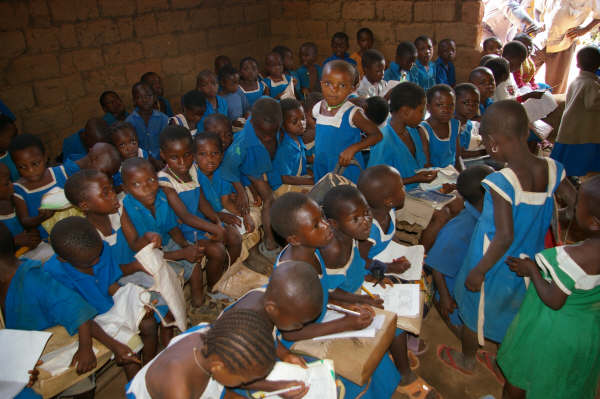
Women and Poverty is a challenge for the African continent.
Women make up half of the world's population and yet represent a staggering 70% of the world's poor. For the millions of women living in poverty, their lives are a litany of injustice, discrimination and obstacles that get in the way of achieving their basic needs of good health, safe childbirth, education and employment. Overcoming these inequalities and ensuring that women benefit from development requires that the needs and desires of women are not only taken into account, but be put front and center.
We live in a world in which women living in poverty face gross inequalities and injustice from birth to death. From poor education to poor nutrition to vulnerable and low pay employment, the sequence of discrimination that a woman may suffer during her entire life is unacceptable but all too common. What does this look like throughout a woman's life?
Read more............................
Source: Julius Agbor
Africa Research Fellow, Global Economy and Development, Africa Growth Initiative
September 17, 2012
The Africa Learning Barometer, a new interactive produced by our colleagues at the Brookings Center for Universal Education, indicates that only about half of sub-Saharan Africa’s 128 million school-aged children currently attending school are likely to acquire the basic skills needed for them to live healthy and productive lives. The center’s research further suggests that if you are a poor, female child currently attending school in a rural region you are far more likely to not be learning the critical skills, such as reading, writing and math. While these gender, income and regional learning gaps exist in most sub-Saharan African countries, they are most salient in South Africa, Uganda, Malawi, Zimbabwe, Lesotho and Botswana.
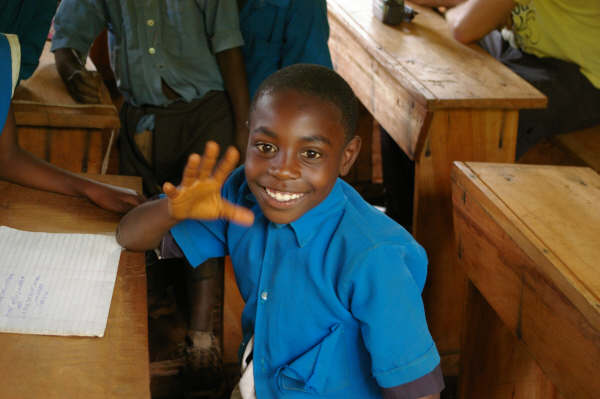 Taking aside the legacy of colonialism and racial and ethnic inequalities in some of these countries, a number of other factors explain the continuing disparities in learning between rural and urban schoolchildren in sub-Saharan Africa. Considering the significance of rural poverty across the continent, it should come as no surprise that rural school children are the most disadvantaged from a socioeconomic perspective when it comes to access to a quality education. Rural schools generally have less qualified teachers and not enough teachers for the number of children enrolled in school. This is clearly evident in the low teachers-per-school ratios and teacher-to-pupil ratios in most rural African regions.
Taking aside the legacy of colonialism and racial and ethnic inequalities in some of these countries, a number of other factors explain the continuing disparities in learning between rural and urban schoolchildren in sub-Saharan Africa. Considering the significance of rural poverty across the continent, it should come as no surprise that rural school children are the most disadvantaged from a socioeconomic perspective when it comes to access to a quality education. Rural schools generally have less qualified teachers and not enough teachers for the number of children enrolled in school. This is clearly evident in the low teachers-per-school ratios and teacher-to-pupil ratios in most rural African regions.
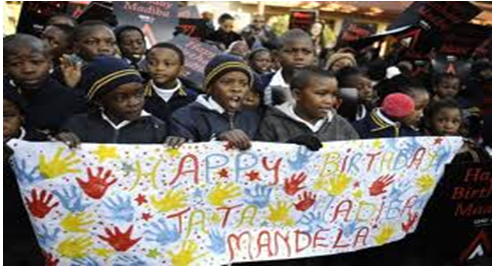 The reasons for these low numbers in rural Africa are many and very much linked to poverty and other inequalities and socioeconomic conditions. For example, teachers generally prefer urban to rural schools because urban areas offer greater opportunities and higher incomes. There is also a better quality of life in urban areas, with better access to good infrastructure, other services (such as healthcare) and general public goods.
The reasons for these low numbers in rural Africa are many and very much linked to poverty and other inequalities and socioeconomic conditions. For example, teachers generally prefer urban to rural schools because urban areas offer greater opportunities and higher incomes. There is also a better quality of life in urban areas, with better access to good infrastructure, other services (such as healthcare) and general public goods.
In contrast, rural areas in Africa are often characterized by poor or nonexistent infrastructure and little or no provisions for other critical social services. This in turn negatively impacts the quality of education for rural-area children since even getting to school is a more difficult challenge and illness of a pupil or a family member may force the pupil to drop out of school entirely. Students in rural regions of Africa are further disadvantaged by the fact that their parents are generally uneducated. Again, we see that other socioeconomic conditions and inequalities greatly impact the quality of education in rural areas compared to urban centers
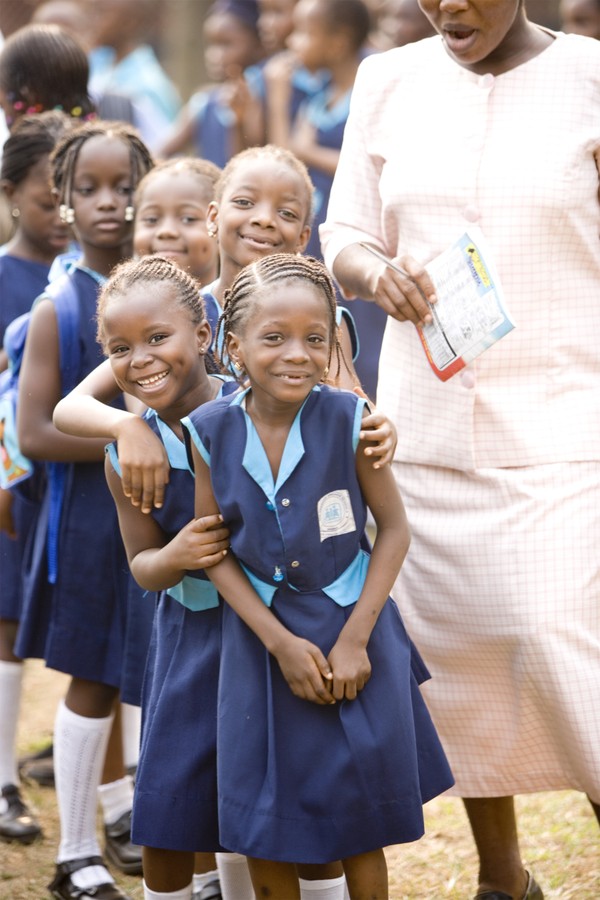 To address Africa’s education crisis, African governments must implement policies that reduce poverty in rural areas, such as improving infrastructure, health and sanitation conditions, and modernizing the agricultural sector. While urbanization is certainly good for Africa’s industrialization and economic growth, a synergy between rural and urban development needs to be maintained if the quality of education in rural Africa is to be improved. African governments can also provide incentives, such as an additional bonus for teachers who accept positions to teach in rural schools. For their part, Africa’s development partners could support initiatives and programs that specifically target rural schools in order to help improve learning outcomes in those areas.
To address Africa’s education crisis, African governments must implement policies that reduce poverty in rural areas, such as improving infrastructure, health and sanitation conditions, and modernizing the agricultural sector. While urbanization is certainly good for Africa’s industrialization and economic growth, a synergy between rural and urban development needs to be maintained if the quality of education in rural Africa is to be improved. African governments can also provide incentives, such as an additional bonus for teachers who accept positions to teach in rural schools. For their part, Africa’s development partners could support initiatives and programs that specifically target rural schools in order to help improve learning outcomes in those areas.
The continent’s education crisis is serious and it adversely affects rural areas more than urban ones. African governments and their development partners should not underestimate the long-term consequences of continued poverty and socioeconomic inequalities in rural areas. These conditions will only continue to exacerbate the education and learning gaps between rural and urban African school children. And in turn, poor quality education in rural areas will only continue to perpetuate long-term poverty in the region. It is a vicious cycle that African countries and international donors must work together to solve.
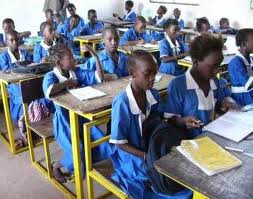 |
 |
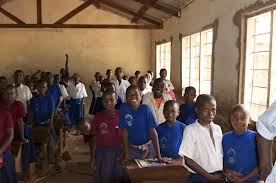 |
Reference:
- http://www.primaryschoolsforafrica.com/
- http://allafrica.com/stories/201105162006.html?viewall=1
- http://www.newsfromafrica.org/newsfromafrica/articles/art_902.html
- http://washafrica.wordpress.com/tag/primary-schools/
- http://www.sacmeq.org/downloads/Working%20Papers/08_Comparison_Final_18Oct2011.pdf
- http://achieveinafrica.wordpress.com/2009/04/15/facts-on-education-in-africa/
- http://www.brookings.edu/research/opinions/2012/09/26-inequality-education-africa-agbor

